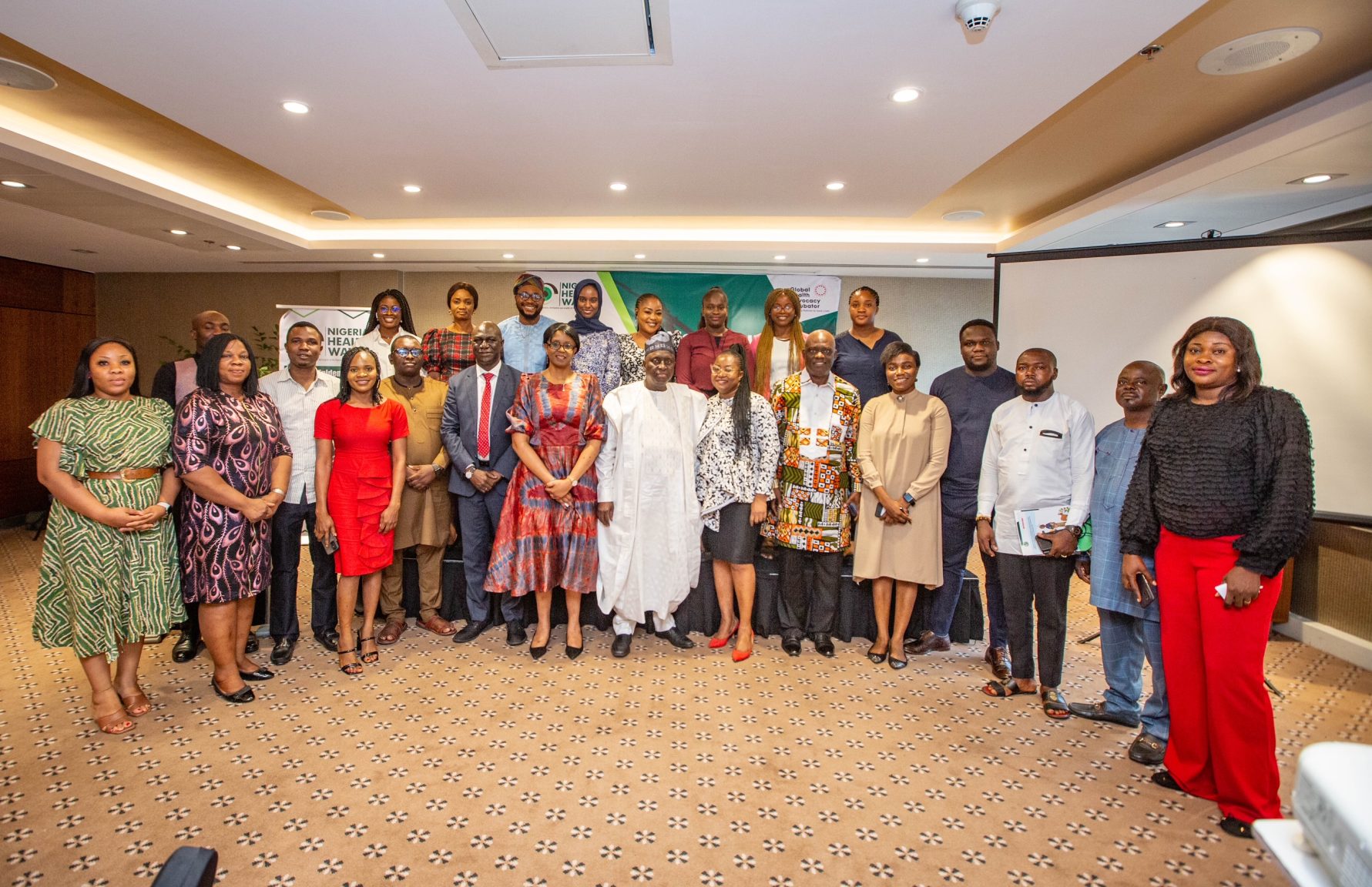
within first budgetary year
As NASS pledges to ensure transmission of Public Health Emergency Bill to President Buhari for assent
The Chairman Senate Committee on Health, Senator Ibrahim Oloriegbe has called on the incoming government to increase the health budget to a minimum of 10 percent within the first year of budget and upgrade it to 15 percent Abuja Declaration before the end of four years to enable the country achieve the Universal Health Coverage (UHC).
He also appealed to the incoming administration to look at additional and alternative sources of funding for health adding that the Senate has already passed an ammendment to make Basic Healthcare Provision Fund (BHCPF) 2 percent instead of the present 1 percent.
Meanwhile, the National Assembly has expressed its determination to harmonize the Public Health Bill which is currently before the Senate and the House of Representatives and ensure that the Bill is assented to by the President before the end of the current administration.
Speaking at the media roundtable with legislators with the theme: “Strengthening Health Security in Nigeria Through Public Health Legislation” organized by the Nigeria Health Watch in collaboration with the Global Health Advocacy Incubator yesterday in Abuja, Oloriegbe said that the current budgetary allocation to health is very small and that the situation is worse at the sub-natiinal level stressing that many states after paying staff salaries, does not provide resources for health services.
He argued that public funding for health must be increased if the country wants to achieve the Universal Health Coverage,
He also lamented that some of the funds meant for allocated to health issues like the cancer funds , the Basic Healthcare Provisions Fund (BHCPF) are behind in terms of implementation.
Oloriegbe expressed disappointment that after 100 percent of the health budget were released, the Federal Ministry of Health implemented less than 30 percent of the budget and returned money to government describing it as a poor absorbing capacity
On the Public Health Emergency Bill, Oloriegbe noted that the Nigerian Senate passed the Bill in January 2022 to revoke the 96-year-old Quarantine Act and establish a legal and administrative framework for managing public health emergencies of national and international concern.
He said, “The last four years have been good for health. we had round pegs and round holes health is a professional sector and requires some technical knowledge, skills, competence and experience to be able to hit the ground running. We had it better because, at least two out of five of us that are leading the health committees had background in medicine and we brought this on board. So what you should do in order to get health budget and health security to continue, I think the first thing is to advocate for what are called appropriate leadership for health committees. Now you see people lobbying for speaker and for senate president leadership. There’s civil society that are interested in health, should lobby for people that they feel have the understanding, to be in health”.
Also speaking, the Chairman, House Committee on Health Services, Hon. Tanko Sununu said that the National Assembly played a critical role in combating infectious disease outbreaks in the country.
Sununu said that the COVID-19 pandemic has shown that disease outbreaks can have devastating consequences for the entire country adding that pandemic preparedness and response depend on strong local and national capacities.
He said that the 9th National Assembly has significantly achieved much in strengthening the country’s health security.
The lawmaker urged the Media to collaborate with the health committees at the National Assembly to foster ways to enhance the implementation of the new public health bills in the country.
Earlier, Dr Emmanuel Alhassan, Global Health Advocacy Incubator, said that the 9th assembly have engaged very actively with various stakeholders to improve the policy and legislative landscape in the country adding that the COVID-19 pandemic has highlighted the critical importance of robust and sustained funding for public health emergencies.
He added that the pandemic has also emphasized the need for strong and effective public health legislation that can support such funding..
In her welcome address, the Managing Director, of Nigeria Health Watch, Mrs Vivianne Ihekweazu, observed that the Nigerian legislative leaders have collaborated with relevant stakeholders and partners to propose a series of new public health bills aimed at enhancing the country’s response to public health emergencies.
“These bills according to her, include the Public Health Emergency Bill, which seeks to provide a comprehensive legal framework for managing public health emergencies.
“The Amendment of the National Health Act, which seeks to address gaps in the existing legislation that hinder effective response to public health emergencies.
“In addition, the Port Health Authority Bill is aimed at establishing and strengthening the Port Health Authority, responsible for health security at the country’s borders,” she explained.
Ihekweazu explained that the media roundtable was to provide an opportunity for experts to share their views on these bills and identify areas where further action is needed to ensure that the country is better prepared to respond to public health emergencies.
She noted that these bills have significant implications for public health in the country, and as such, it is critical that they are thoroughly examined and discussed by key stakeholders in the health sector.






